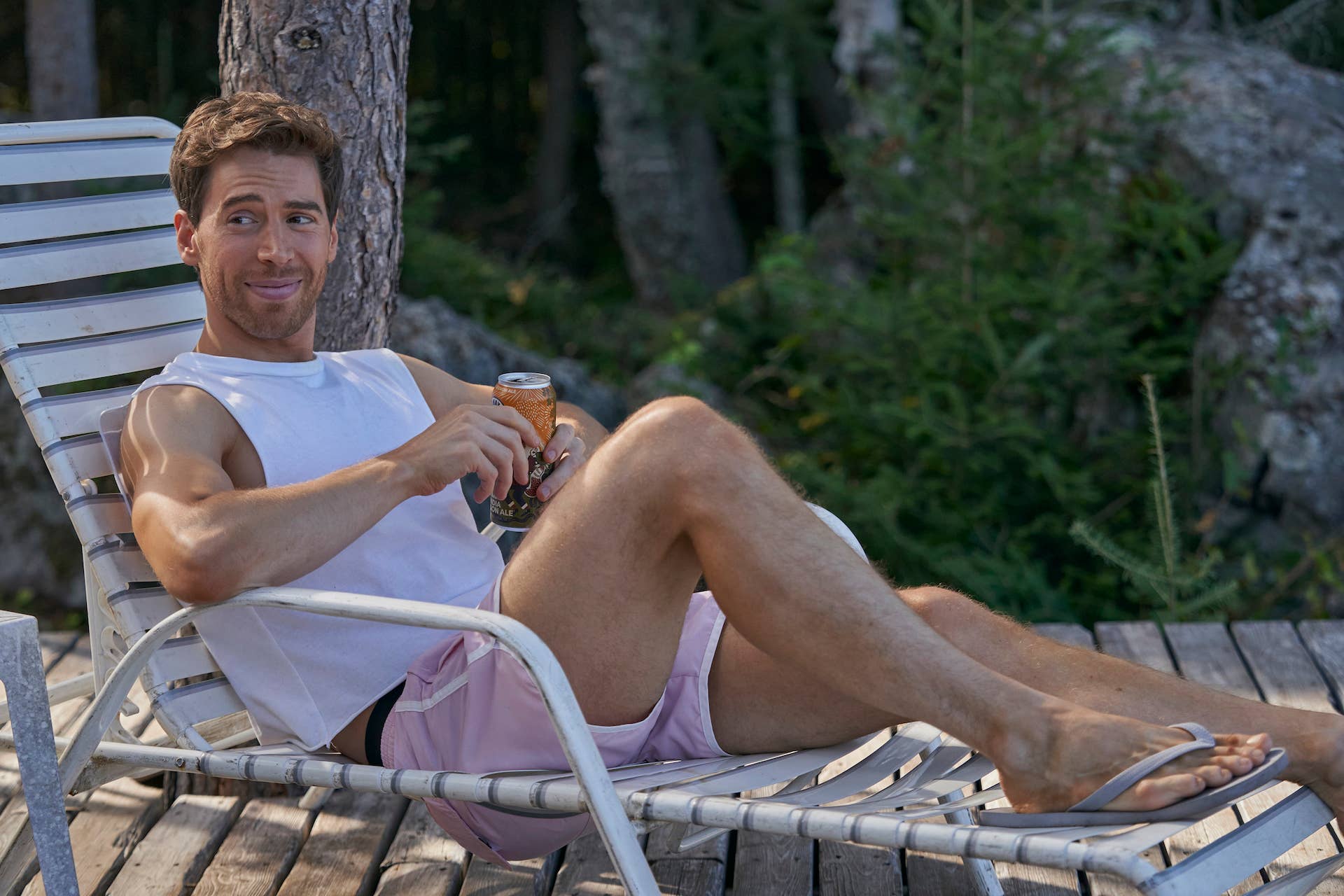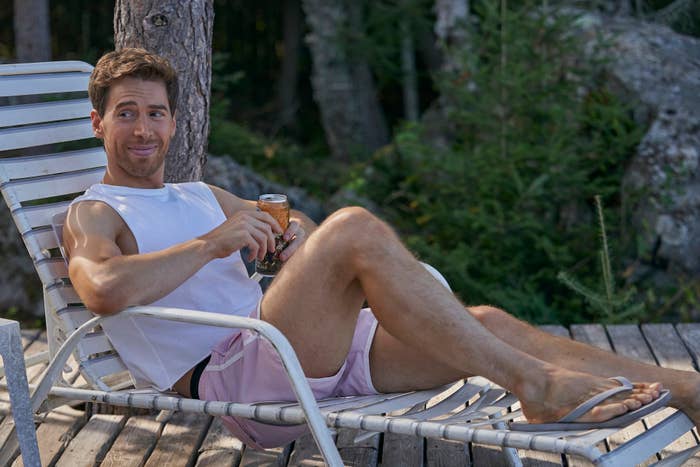
After garnering attention for his role as Fe in Orphan Black, Canadian actor Jordan Gavaris has always wanted to flex his comedic side. Now, he’s proven that he has the comic range in spades with the new series The Lake.
Set in northeastern Ontario, it is the first scripted Canadian Amazon Original. The Canadian cottage country comedy also stars Julia Stiles and Madison Shamoun.
The series follows Justin (Gavaris) as he returns from Australia after breaking up with his long-term partner, in the hopes of reconnecting with 16-year-old Billie (Shamoun), the daughter he gave up for adoption when he was in high school. His plans to create new memories with his city-loving daughter at the idyllic lake from his childhood go awry when he finds out his father left the family cottage to his golden-child stepsister, Maisy-May (Stiles).
The series closed out Inside Out earlier this month, a festival that aims to bring together Canada’s LGBTQ+ community in celebration of queer film and television.
We caught up with Gavaris over Zoom to discuss his love of comedy, how the queer community is represented in Canadian television, what needs to change and how The Lake steers clear from the old narratives and tropes.
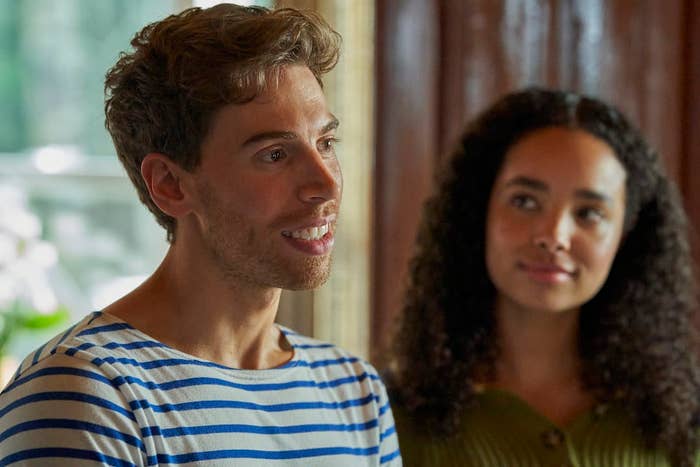
You said that you’re nervous as the release of The Lake approaches. Why so?
I certainly feel this pressure knowing that this is Prime Video’s first Canadian scripted original series and feeling a little bit of pressure to represent well, which I also felt when we were representing Toronto with Orphan Black on BBC America; I felt a similar kind of pressure. So it’s just that little bit of tension before the drop. But I think people are really going to like it. I hope that we’ve captured, as you say, the cottage experience authentically and humorously. I hope that we managed to do thatI think it’s just the nerves of not knowing how it’s going to be received. We think it’s great. But now we’re putting this baby out into the world and people are going to have lots of opinions about it. And I’m sure some people are not going to like it. But I’m really excited. It’s also hard to tell the difference sometimes between excitement and like abject nervousness, you know? [Laughs.]
What was the appeal of this project and how did it fit in with your career goals?
I really wanted to do comedy. Since I left Orphan Black in 2017, that’s really been something that I’ve been dreaming about. As incredible an experience as Orphan Black was, it was a really heavy universe. Everybody sort of felt the waiting that’s on their shoulders while we shot the show. I was looking forward to doing something that was more about finding laugh in a moment, or I love improv and I was looking for something that also allowed for a little bit more improvisation, which, of course, comedy does just inherently allow a little bit more space for actors to get creative in the moment. But it was really the script. I read dozens and dozens and dozens of scripts and read for dozens of projects. It was when I cracked open The Lake, it was similar to the feeling that I’ve had on other projects when I cracked open that pilot. I was just blown away. I thought the writing was so sharp. It was progressive without feeling preachy. It was progressive without feeling like I was getting a lecture on morality or progressivism. I think it’s the direction that entertainment and culture can and should move in. But it didn’t feel like we were taking medicine, it really felt just fun.
The characters were so bold and colourful and they all had really distinct and individual voices. And honestly, at the heart of it, I was just so thrilled by this love story that wasn’t a romantic love story. It was a love story between a birth father and a daughter. I’ve never played a parent before and it shows, as it should, because Justin doesn’t know how to be a parent. That was really exciting to me too. I thought this is a completely unique dynamic that I’ve never had the opportunity to act in on screen. I’ve played brothers, I’ve played sons, I’ve never played anybody’s dad and that was really cool. It was also really neat to stumble through the dynamic because they’re somewhat unfamiliar with one another. As the series begins, they haven’t spent a lot of time together in real life. So I used a lot of my own awkwardness and nervousness in this role. It worked really well and informs Justin’s awkwardness with Billie.
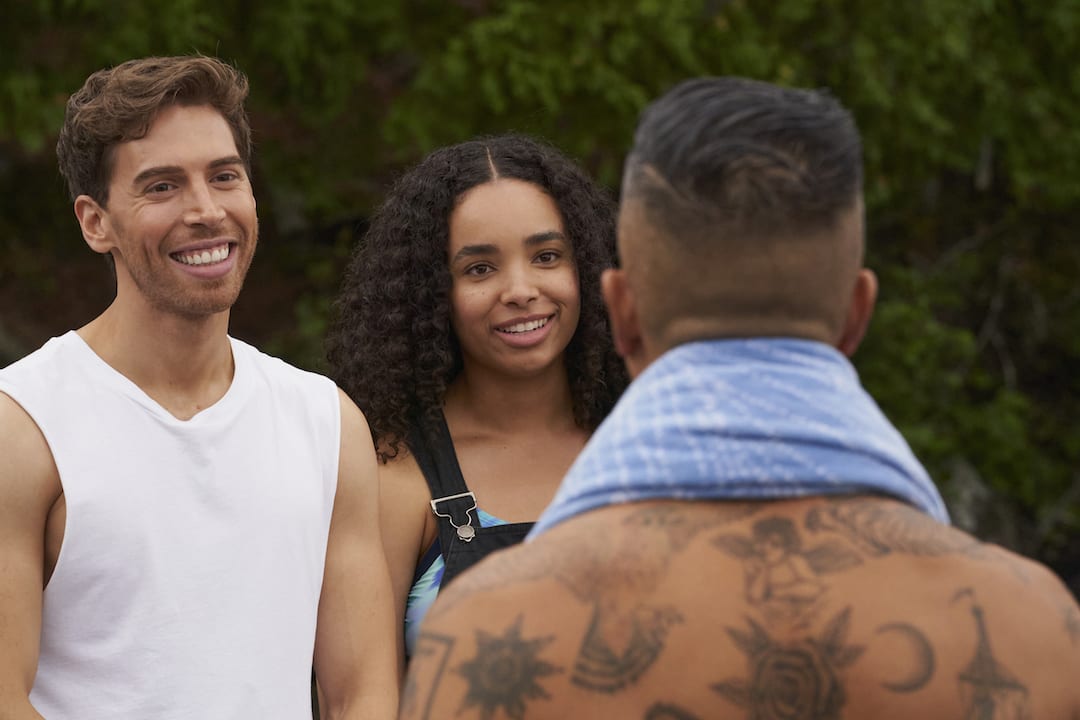
“I would be perfectly happy playing queer characters for the rest of my career, provided that they were as distinct and varied and complex and interesting as their hetero counterparts.”
It does! I read that it was your first major role since coming out. What kinds of roles were coming your way before that? And did it make a difference, especially in Canada? How has the industry experience been?
The industry experience truthfully has been not too different from my experience prior to coming out. But it’s also tough to say because while I was on Orphan Black, I obviously wasn’t reading for a lot of other television and the landscape of media was changing, so fewer movies were being made. I would say that I definitely get more interest from people in the context of queer roles, which I’m OK with, I think I’ve said this for years, because there’s the discussion around whether or not queer actors should play queer parts or whether all parts should be open to us.
I would be perfectly happy playing queer characters for the rest of my career, provided that they were as distinct and varied and complex and interesting as their hetero counterparts. But we’re not quite there yet. So I think that’s why there’s a kind of fear… because we don’t want to be shut out of the other ones. But I think as the industry evolves and as storytelling evolves, I truly, truly would be very happy to play only queer characters provided those characters were just as dynamic and interesting. That’s part of what drew me to The Lake; you have this character that normally exists in the periphery of many other stories. But in this universe, he’s the lens. He’s the perspective. He’s our angle for the narrative. He’s right in the crosshairs story. That was very exciting to me because I just hadn’t seen a lot of that before.
How do you think the queer community is represented in Canadian TV? What are the shortcomings and, like you said, what needs to be improved?
Yeah, I think its volume. The queer community, myself included, probably to a lot of people, it feels like we’re always beating that drum. “There are just not enough queer stories. There are not enough queer stories.” It can seem like a bit of a broken record but I think it is that way because it’s true. We’ve definitely got more queer-centric TV and queer-centered film. There are so many characters, so many lives to explore—we’ve been exploring every version of a heterosexual experience since the conceit of film, that’s all we’ve been doing. We’ve seen thousands and thousands and thousands of characters and experiences represented on screen. So I think the answer is there’s never enough. We’re getting better, but we’re not there because there will never be enough representation. I don’t say that in a way of sounding discouraging in any way. I just think that the goal is to constantly represent and constantly find new facets and angles and new stories to tell possibly about the same person.
I think that it’s kind of logical fallacy to think like, “Oh, well, we’ve got a trans character at the center of this film now. OK, so we’ve represented trans people.” Well, of course not. There’s hundreds of thousands of trans experiences. There’s hundreds of thousands of gay experiences. I think it’s just that idea that we’re always going to be chasing the Black Cat. There are too many stories to tell and not enough time to tell them and we just have to keep telling those stories, which also just means finding new ways to give those opportunities to budding filmmakers and storytellers who have clear stories to tell.
How does The Lake approach this beyond the same old narratives that we’ve seen before?
I think we thankfully didn’t step into any of the heteronormative tropes that I think queer relationships sometimes fall into on film and TV. It’s understandable because that’s what we’re familiar with in culture. So naturally, that’s what our instinct is going to tell us that we should write these characters, but I don’t want to spoil anything. But Justin and Riley have a more of a non-traditional relationship that we get to see on-screen, which was really exciting to me because that also reflects the world that I live in and many of my friends. So I think we avoided in that way.
Justin’s problem is not that he’s a gay man, he’s fine. He’s completely well-accepted in the context of his sexuality, he’s doing just fine. His problem is that he doesn’t know how to be an adult, and he doesn’t know how to be a parent. And this failure to launch is trickling down and affecting his relationship with his birth daughter. That’s where I think we subvert the trope in that he’s an otherwise well put together person, he’s just not a grown up yet. His sexuality is, he’s not coming out on screen. We’re not exploring the pitfalls of being, a gay, cropped-top-wearing cute boy in the country. The biggest problem is just him trying to find his way into this relationship with his birth daughter. And that’s really nice because this will probably shock everyone but gay people have problems too, that have nothing to do with their sexuality. [Laughs.]
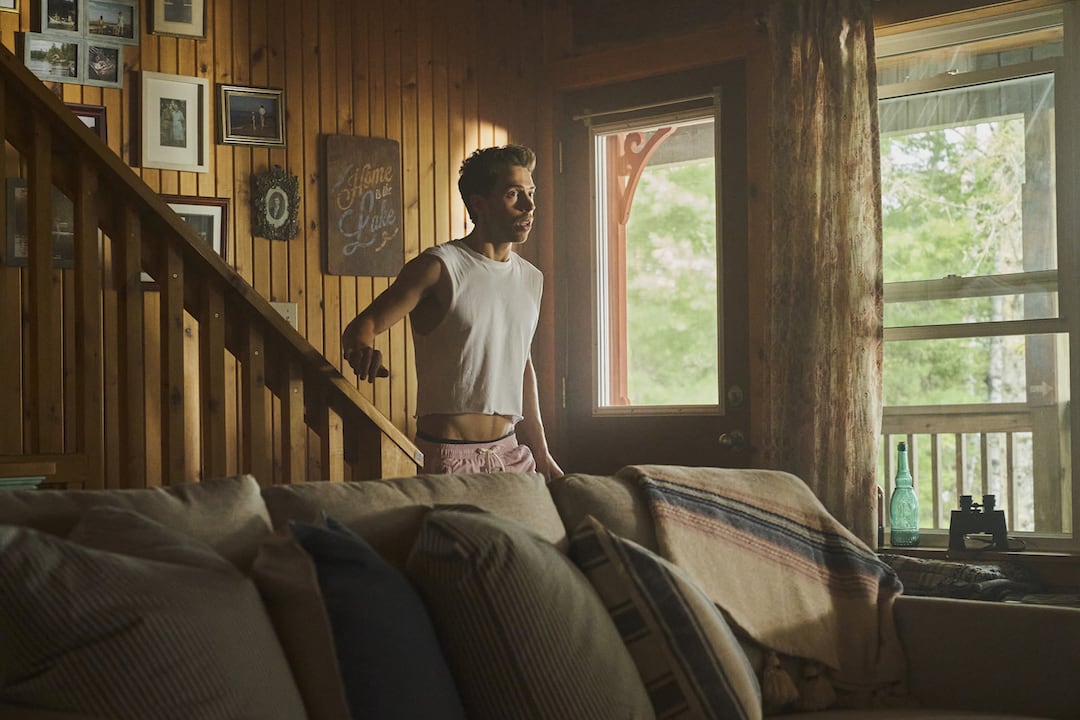
Jordan Canning is one of the show’s directors and with what she did for Schitt’s Creek, how is she carrying the torch of the Canadian series and taking the LGBTQ stories a step further?
Incredibly! She carries it with all of the grace and humility and awareness and creativity. She’s just an incredibly dynamic person. She’s a really thoughtful director. She’s organized, she knows how to work with actors, she understands story on a real instinctual level; knows exactly what she needs and knows what she doesn’t need. She’s going to be winning awards. I truly can’t say enough about her. In terms of female directors and comedy, she’s just one of the most exciting voices that I think exists in Canadian film and TV right now. In terms of carrying the torch, I just think there’s nobody better to do it. It just kind of blows my mind because on top of being this really creative director, she’s also just a really lovely person, very personable, very warm, really accessible, and reads the material with a lot of a lot of sensitivity and respect, even if it’s a comedy. She’ll always mine the scene for something a little bit deeper. With something with a little bit more pathos. I think she just manages to balance pathos and comedy in the same frame with incredible acuity. She’s pretty remarkable.
What was your Canadian cottage experience like growing up?
We didn’t own a cottage but we did rent a cottage a couple of summers in Muskoka. And I can say, in all honesty, nothing that we put on screen in The Lake, I don’t think there was anything that I didn’t either hear about happening in real life or watch happen in real life. Except for the tilt—that was the one thing that I was kind of unfamiliar with. Nothing else but the tilt. We did tug of war, we did all the typical things, but tilting was the first time I had ever heard about that. I was like, “What is this weird custom?” But apparently, it’s a real thing. People really do it. That was just the one thing that was missing from my cottage experience growing up. But the blood feuds and the infighting and the food and doing nothing, eating chips on a dock, that was definitely my experience.

